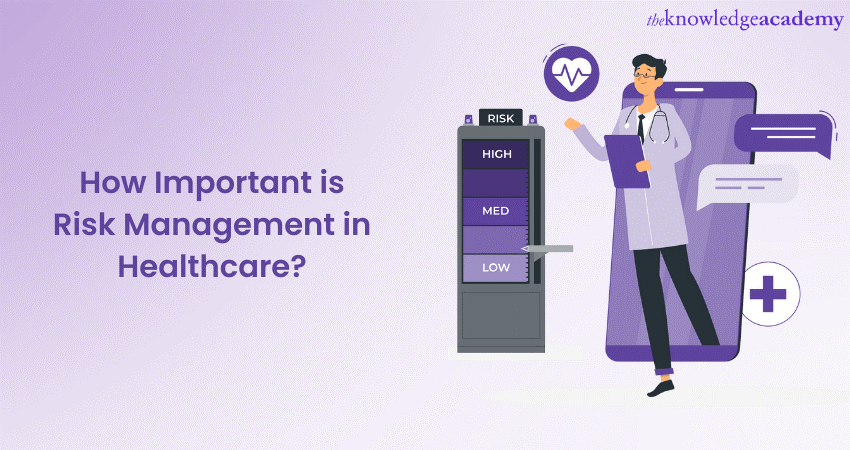Why Organizations Should Prioritize the Importance of Risk Management Now More Than Ever
Why Organizations Should Prioritize the Importance of Risk Management Now More Than Ever
Blog Article
The Crucial Relevance of Risk Management in Achieving Business Goals
In the swiftly advancing organization landscape, the ability to browse unpredictability has come to be a vital. This is where Risk Management action in, offering a structured strategy to recognizing, evaluating, and mitigating prospective obstructions to proceed. It's greater than simply a safety measure - it's a tactical tool, promoting strength and advancement. As we discover the vital duty of Risk Management in achieving business objectives, one can't ask yourself but help: how does this convert right into real-world success?
Recognizing the Idea of Risk Management in Company

The Important Function of Risk Management in Strategic Planning
Integrating Risk Management into critical planning acts as a secure for companies, anchoring their long-term strategies with a strong foundation of preparedness and resilience. Risk Management provides a structure for anticipating uncertainties and designing ideal reactions, making certain the organization's survival and success also in the face of hardship. By integrating Risk Management right into calculated preparation, companies can change these unpredictabilities right into opportunities for growth and technology.

Techniques for Identifying, Assessing, and Focusing On Dangers
Navigating the facility landscape of threats needs the application of certain techniques for their prioritization, evaluation, and identification. The process starts with Risk identification, employing devices such as SWOT evaluation, which aids in pinpointing possible hazards and possibilities. Next off, Risk evaluation is performed to ascertain the his comment is here potential impact and likelihood of each Risk. Devices such as Risk matrices and impact-probability charts are utilized for this. Threats are focused on based on their prospective impact and possibility, enabling organizations to concentrate their sources on high-priority dangers. This systematic method makes sure a detailed understanding of the Risk landscape, allowing organizations to make informed decisions and effectively take care of threats to attain their goals - importance of risk management.
Securing Organizational Workflow Through Reliable Risk Management
In the service landscape laden with unpredictabilities, efficient Risk Management plays an essential role in guarding business procedures. It acts as a safety shield, reducing the adverse impacts of possible risks and ensuring the smooth performance of all processes. By determining and assessing prospective hazards, Risk Management allows organizations to establish durable contingency plans. This precautionary technique help in preserving functional stability, also when faced with unanticipated circumstances. Essentially, Risk Management is the lifeline that maintains the business operations afloat in the middle of rough waters. It ensures look at this website not only the survival however the lasting growth of an organization, making it an essential device in accomplishing service objectives. Therefore, organizations must purchase detailed Risk Management strategies to protect their operations.

Transforming Potential Hazards to Opportunities: The Power of Risk Management
A proactive technique to risk Management includes recognizing, assessing, and focusing on threats to create strategies that turn them right into possible advantages. Thus, by leveraging the power of Risk Management, organizations can not just protect their procedures however also stimulate development and attain their goals in an unforeseeable business atmosphere.
Situation Researches: Success Stories of Risk Management Driving Organization Objectives
Successful application of Risk Management strategies has actually produced outstanding outcomes in various businesses, highlighting the merits of this technique. International firms like Microsoft and Google, for instance, have leveraged Risk Management to lessen hazards and manipulate possibilities, driving their business goals forward. These instances illustrate how successful Risk Management can not only guide services clear of possible challenges yet also lead them in the direction of their calculated purposes.
Verdict
In final thought, Risk navigate here Management is essentially essential in attaining business goals. By incorporating Risk Management into calculated preparation, businesses can much better navigate uncertainties, safeguard procedures, and capitalise on chances, thus lining up with long-lasting purposes.
At its core, Risk Management is the procedure of identifying, assessing, and dealing with prospective threats that could negatively influence a company's procedures or goals. Next, Risk analysis is conducted to ascertain the prospective impact and likelihood of each Risk. Dangers are prioritized based on their potential impact and probability, permitting organizations to concentrate their resources on critical risks. By recognizing and evaluating prospective threats, Risk Management enables companies to develop robust backup strategies. A proactive strategy to risk Management involves determining, analyzing, and focusing on dangers to devise approaches that turn them right into prospective benefits.
Report this page